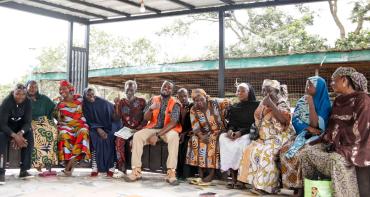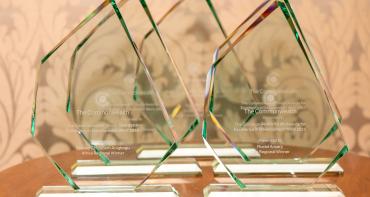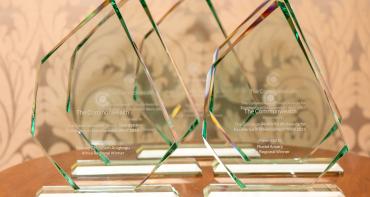By Muhammed Badamasi and Chimaobi Omeye, Commonwealth Correspondents
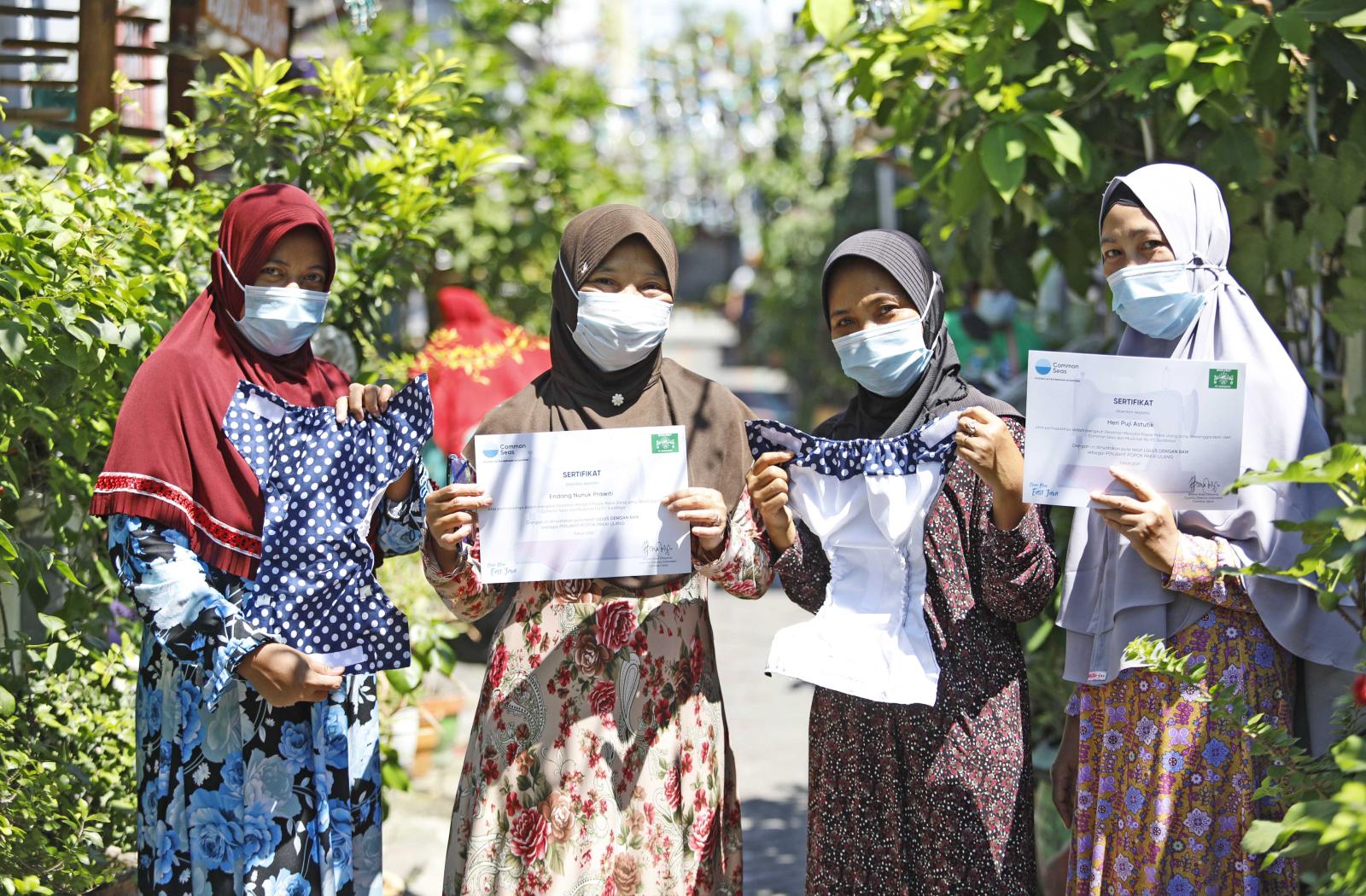
This Commonwealth Secretariat blog is part of a series launched at Youth4Climate and COP26, featuring young people from across the Commonwealth who are leading the way on local climate action. The blogs are written by fellow youth citizens from the Commonwealth Correspondents network. Contact us to be part of this series. View the full blog series.
Across the Commonwealth, young people are forging new careers out of their purpose-driven missions to protect our environment.
Leading the way from opposite sides of the North American continent are Jordon Freeman in Jamaica and Peter Chauvel in Canada, who are both using innovative solutions to tackle plastic pollution and help create a safer, cleaner, thriving ocean for all.
Environmental threat
In 2018, a conversation between a father and son in Jamaica was the start of an idea that today not only contributes to the local economy, but provides a solution to one of the ocean’s biggest threats: plastic pollution.
This conversation, between Jordon Freeman and his father, led to the founding of a company which is creating a natural, degradable, alternative material to plastic.
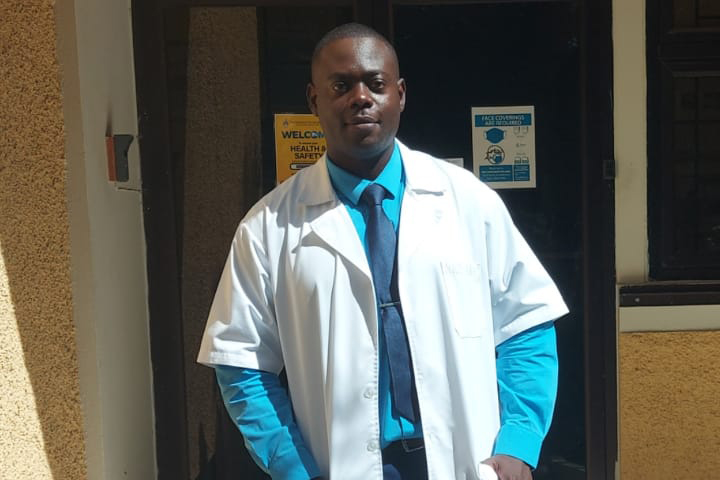
Jordon’s project, JA Bioplastics, is a direct response to the ever-growing problem of plastic pollution, especially plastic packaging. Plastic has become indispensable in the commercial packaging industry and most people don’t think twice about buying single-use plastic in their food and drink packaging.
Most of us know that because plastic packaging is rarely reusable and non-degradable, it damages our environment. And as plastics are broken into tiny ‘microplastics’ that get into water bodies, they also pose a danger to animals and humans.
Yet despite our awareness, the problem isn’t going away. The United Nations reported that 13 million metric tons of plastic wind up in the oceans every year.
The issue remains that we simply don’t have many other options when we are shopping; plastic packaging is almost unavoidable. Which is why Jordon and his team are working to provide a scalable, innovative solution to the problem.
Eco-friendly innovation
Jordon, who is a Doctor of Philosophy candidate in Biotechnology, has developed an alternative to petroleum-based plastics: bioplastics that are 100% degradable, water-soluble, renewable and affordable.
Through this initiative, Jordon believes that we can totally replace petroleum-based plastics, especially for packaging. He explains: “Biotechnology is about using biomaterial from the environment to make life easier for human beings. Whatever processes happen in a micro bacteria, plant, or animal; we modify, utilise and mimic that.”
“I was able to use materials from plants that have the similar polymer structure as plastic, that would allow us to get comparable tensile strength and structure for us to use as a carrying packaging or other purposes that plastics are used for.”
As a result of this innovation, among others, Jordon has been awarded the Governor-General’s Achievement Award, the Prime Minister’s Youth Award for Excellence in Innovation, Science and Technology, and the National Youth Innovator Award. Jordon was also recently selected among the 2023 cohort for the Young Leaders of the Americas Fellowship Program.
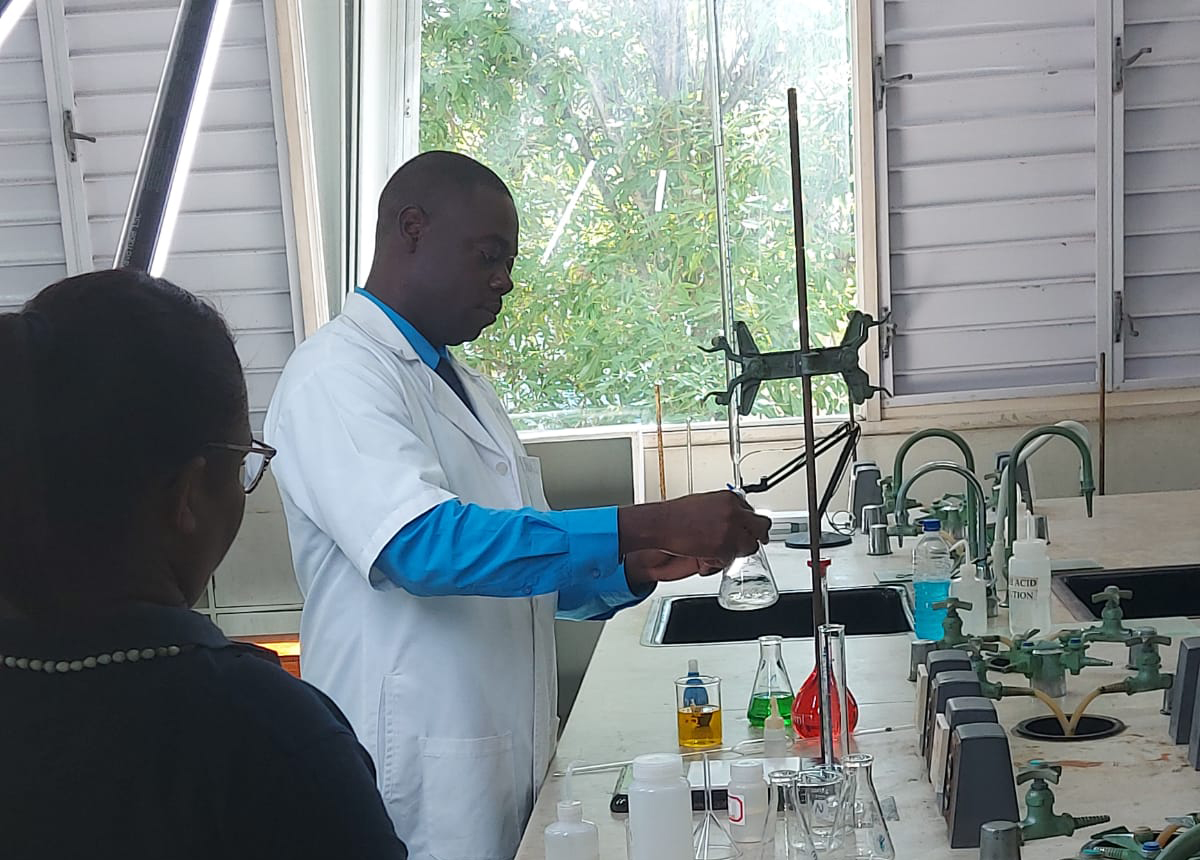
Cost of pollution
Not only is the environmental impact of plastic pollution enormous, the economic cost is too. Plastic pollution costs US$13 billion in economic damage to marine ecosystems per year, including losses to the fishing and tourism sectors, and the cost of cleaning up beaches.
According to Jordon, his innovation can help reduce this. He says: “We are able to - at least in Jamaica for now - replace up to 50% of the plastic that is currently used, and this is based on all uses of plastic. From packaging to that which is used in automobile industries.
“While there are several industries that use plastics for different purposes, the one that we are targeting immediately is packaging because we find that that is where most plastic is being used.”
For this to happen, the alternative material must be equally as accepted as petroleum-based plastics, which is why Jordon is working to ensure that his bioplastics are durable, marketable, practical and cost-effective.
New vision
Jordon says he has learned a lot about building innovation in technology and starting a company, especially in business management and public speaking. He believes that even if you have ground-breaking ideas, it is critical that you can convey these ideas to people who have the resources and capacity to bring them to life.
Although full deployment of the product has been delayed by COVID-19 due to restricted travel to source materials, Jordon has received many assurances from organisations that believe in his vision.
At a time when many companies are more concerned about ensuring maximum profit with no regard for the environmental implications, Jordon and JA Bioplastics are changing the narrative that creating economic value must come at the expense of our precious planet.
Youth leadership
On the other side of North America with an equally impressive environmental vision is Peter Chauvel, a youth leader from Canada. Peter is currently the Project Manager for the Clean Blue Alliance of Common Seas, working across Indonesia and the Maldives to drive forward a global network of island communities free from plastic waste.
His passion for the oceans and sustainability started from his early experience in commercial fishing. Peter acquired a Master of Management in International Business and a Master of Business Administration and Economics, specializing in Energy, Natural Resources and the Environment. During his studies, he worked in India as a strategy consultant, and as a project manager for Internet of Things technologies while in Norway. Following his studies, he moved to the Netherlands where he worked as a strategy consultant focused on sustainable solutions in the global commodities sector.
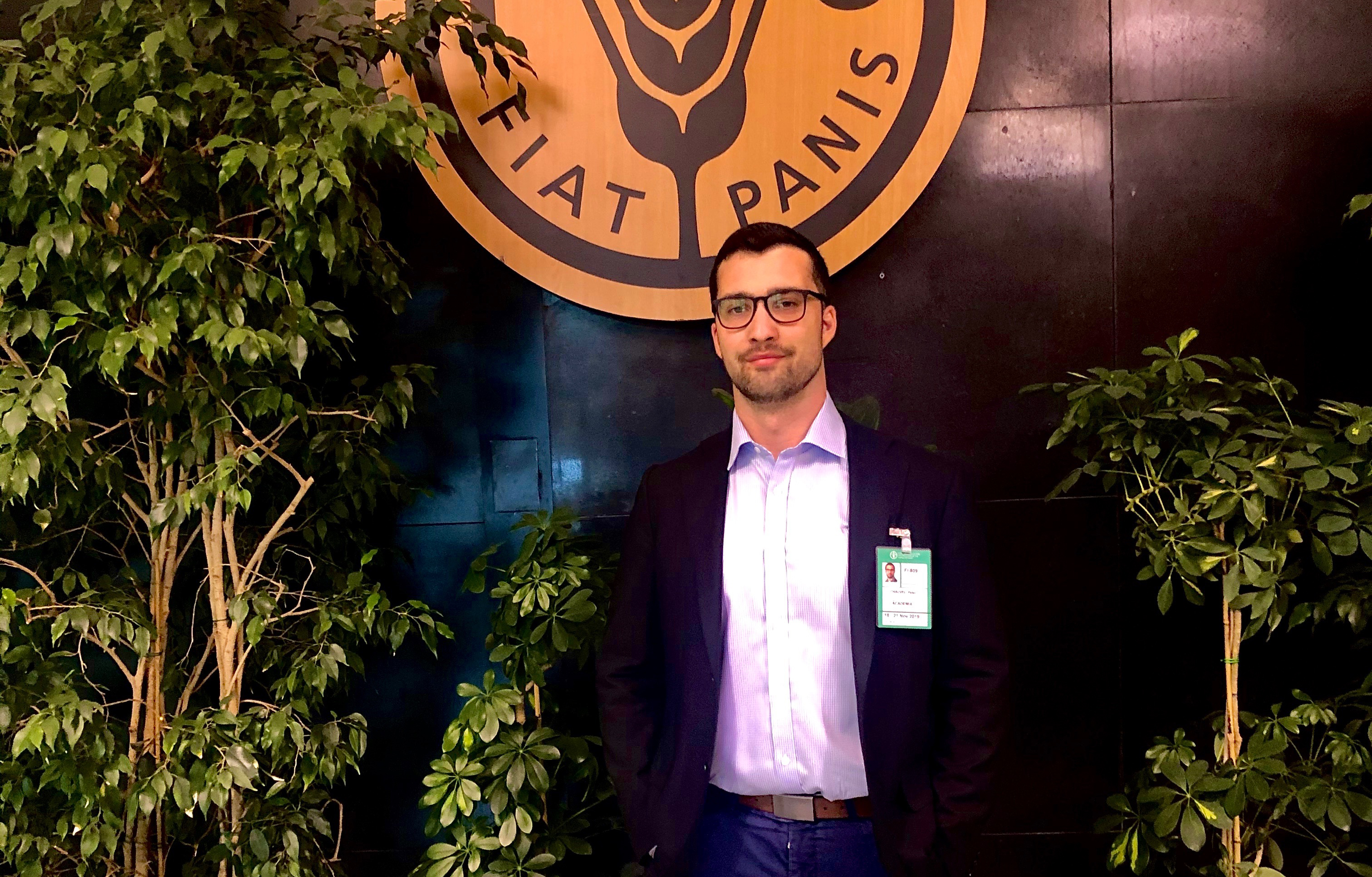
Peter’s work spans four continents and has impacted the lives of millions. His work in economic and environmental modelling, report generation and multi-stakeholder management in terrestrial and aquatic sectors led him to be named a Young Global Ocean Leader by the Sustainable Ocean Alliance and a Young Global Changer by the G20.
Commonwealth Youth Correspondent Chimaobi Omeye interviewed him to find out more about his vision for a less plastic polluted planet.
What first motivated you to act on ocean issues?
My interest in addressing plastic issues started when I was a commercial fisherman. Seeing the waste and refuse from the Japan tsunami washed up on the shore in Western Canada motivated me to act. My role at Common Seas started when I was asked to address these plastic waste issues.
What challenges do you face in your work?
There are some of the obvious ones such as COVID-19 in 2020 and 2021 which prevented a significant amount of our project work from being undertaken. The other area that has been challenging is that plastic still exists in such high quantities because it is such a great material. It does fantastic things that we struggle to replicate with non-plastic materials; trying to find solutions or alternatives to plastics is a challenging area.
There is no single solution yet. There are multiple solutions at multiple levels across the value chains and communities that will help to address this. But there is no direct way to replace plastics that will immediately solve the problem. We need to start changing behaviour, materials, valuation, and start accounting for the cost plastic bears on our environment, ocean and Island communities.
How does your work contribute to Sustainable Development Goal 14: "Life Below Water"?
The ocean is the life blood of the earth. It produces the majority of our oxygen, provides food for billions, and acts as the main highway for international trade and transport. Yet we have largely treated it as a dumping ground, or for hiding ways of removing what we don’t want to see.
Our main goal is to prevent new plastics from entering the ocean. There are many initiatives around the world that are working on cleaning up the plastics, but what we want to do is to stem that flow. We do that by working with upstream value-chain actors, extending producer responsibility to the prevention of plastics escaping from rivers to the ocean. The truth is that no matter how much we clean, there is still more entering the oceans.
What are the three principles of the Clean Blue Alliance initiative at Common Seas?
Investigating, intervening and influencing. At its core it is about getting an understanding of what plastics people use and what they do with it after, and we have built a very complex model to do this. Once we have that regional information, we can go ahead and target those systemic changes.
In East Java in Indonesia for example, we found that over a million diapers are thrown into the river every day. One reason being that reusable diapers are very expensive. So, we are creating an affordable reusable diaper.
We also have an international programme called the Ocean Plastic Academy where we work with schools to educate young people about the harms and risks of plastic use, and the opportunities in changing our behaviour.
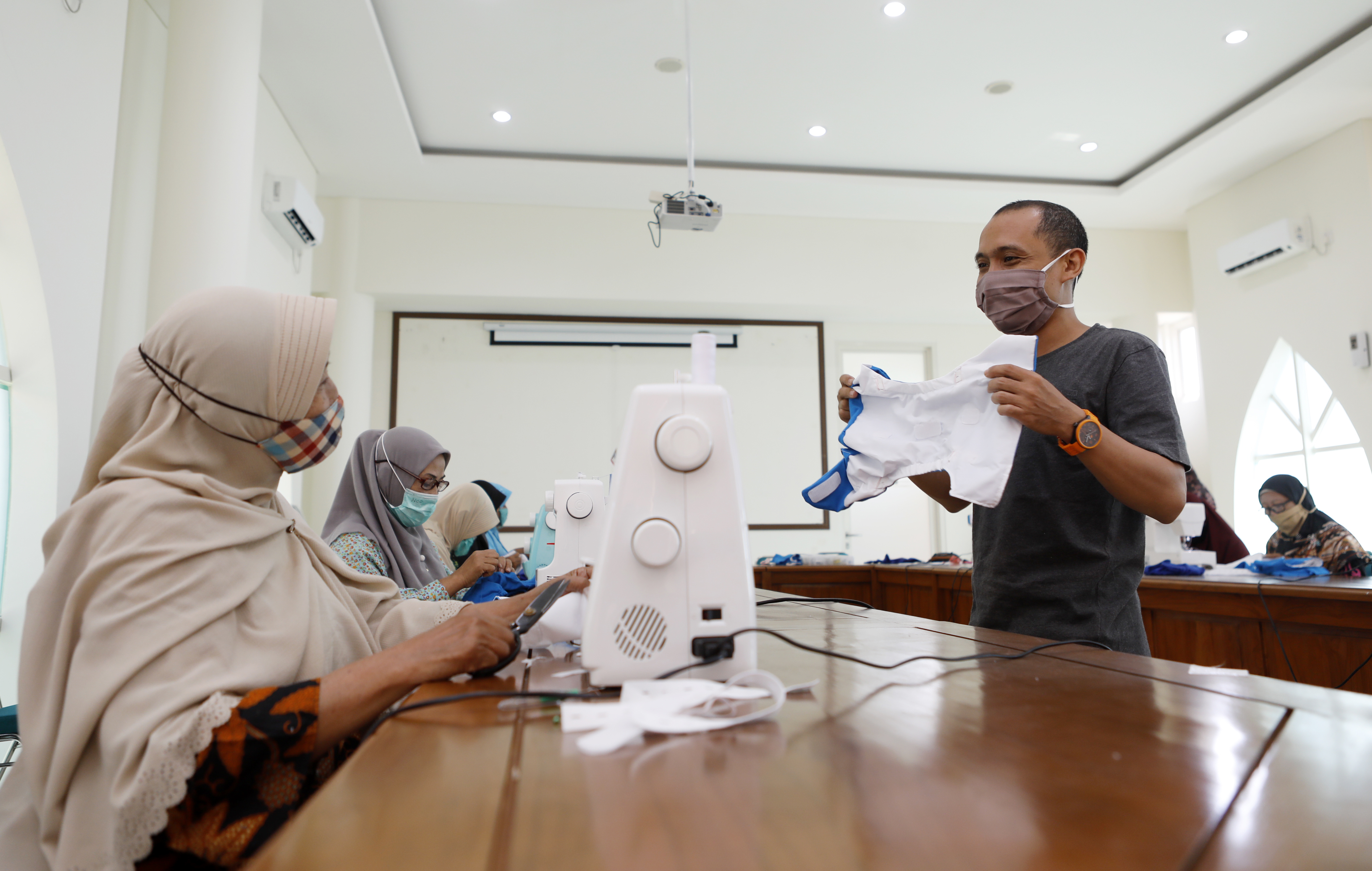
How do we reduce plastic leakages into the ocean?
I think we need system change. There are consumer and commercial aspects to the usage of plastic that we need to think about when providing solutions. Do we even need these items? Are there ways we can redesign them? If not, can we reduce their usage?. From this, we can start to move towards a series of solutions. We need to improve circularity and look at alternative materials.
As I mentioned there is no single solution to address this issue. We need to work systemically; we need to work upstream to the hydrocarbon producers and big oil producers, and downstream to the waste collectors in communities. It is a collaborative effort.
I think we need strong legislation like the European Union policy on banning certain plastics and removing them from certain areas. What it does is put an onus on businesses and individuals to change behaviour because that practice is no longer available, or it is a cost that this no longer competitive to alternatives.
How does your organisation empower young people?
Common Seas has done a fantastic job of developing free resources through our Ocean Plastic Academy for multiple ages, from the very young entering elementary school to teenagers. They give young people a holistic understanding of the plastic challenge in the world, and are being adopted by schools around the world.
At Common Seas I also work as one of the team leads for the early career ocean professional network for the UN Ocean Decade, where we have built multiple hundred-person teams of leaders from more than 30 countries.
We are also working on getting a seat at the table for youth to speak up in international dialogues for the ocean. I also work with the World Economic Forum as a young global shaper (Oxford Hub), with the G20 and the Sustainable Ocean Alliance.
What is your advice for other young people who hope to work in this area?
You are not alone. There are those who want to help you, and we need all the help we can get. Reach out to the professionals as they are here to support. Do not be afraid to look for help.
'You don’t know what you have got until its gone' is a great motivating statement. I have seen monstrous changes in places I have been and oceans I grew up with, and I do not want it to continue. I want to go and see the dolphins and the whales and I want my kids to be able to do that one day.
So, my advice is do not start tomorrow, next week or a year from now. Start now.
This Commonwealth Secretariat blog is part of a series launched at Youth4Climate and COP26, featuring young people from across the Commonwealth who are leading the way on local climate action. View the full blog series.
The blogs are written by fellow youth citizens from the Commonwealth Correspondents network. To be part of this series, contact us.
Share this blog series on social media using hashtags #CommonwealthForClimate, #CommonwealthYouth and #BlueCharter.
Main image: Workers in Indonesia with the reusable diapers they have produced to help tackle plastic pollution

